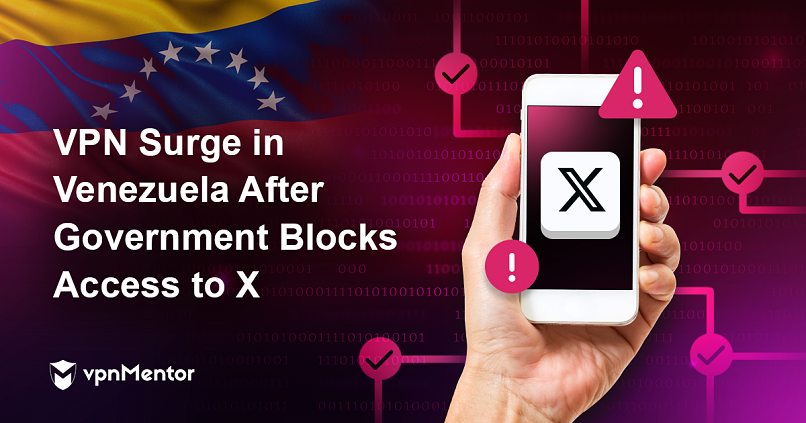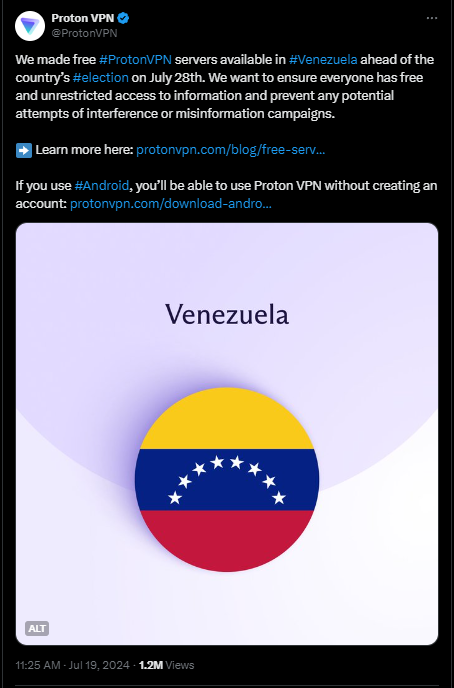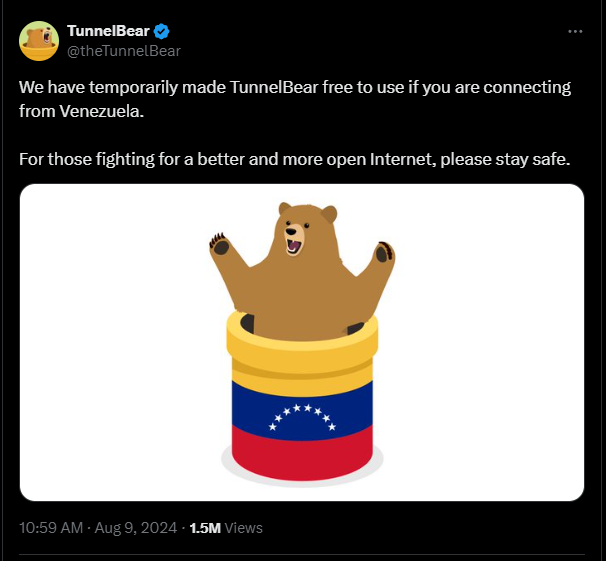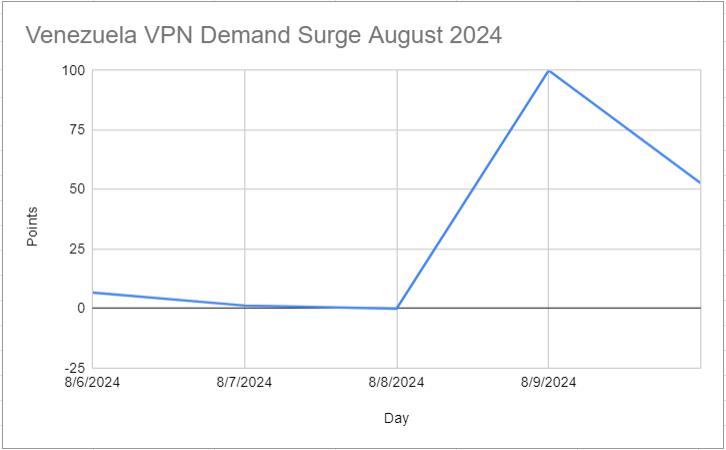VPN Demand Surge in Venezuela After Government Blocks Access to X

VpnMentor’s Research Team observed a remarkable increase in VPN demand in Venezuela following the government's decision to block access to X (formerly Twitter) for 10 days amid protests and demonstrations.
This move comes after the results of the country’s presidential elections were announced, sparking allegations of fraud and demonstrations against the government.
The decision to temporarily block X — and the threat of blocking WhatsApp along with it — is likely the government’s attempt to control the flow of information coming out of Venezuela. This move has sparked concern both nationally and internationally, with many condemning it as a violation of freedom of speech and an attack on democracy. In response to the X blockage, many Venezuelans have turned to Virtual Private Networks (VPNs) to bypass the restrictions and access social media platforms.
VpnMentor’s Research Team found a staggering 494% increase in VPN demand in Venezuela after the blocking of X in the country. The surge in demand started on Thursday 8 after Conatel, Venezuela’s National Telecommunications Commission, effectively blocked access to the social media platform. VPN demand kept on growing until it reached its peak on Friday, August 9.
Before the elections of July 28, ProtonVPN started to offer its services for free to Venezuelan residents. Following the implementation of the blockade on Friday, August 9, TunnelBear VPN announced on X that they would offer temporary free access to people living in Venezuela in a show of support. This gesture led to a significant increase in demand for both VPNs across the country but only skyrocketed after the ban of X.
 Proton VPN Post on X
Proton VPN Post on X
 TunnelBear post on X
TunnelBear post on X
The restriction on X marks a concerning development that adds to the constraints on freedom of expression and information access within Venezuela. With Venezuelans persisting in their quest for political transformation and economic equilibrium, global attention remains fixed on the unfolding events.
Past VPN Demand Growths
The vpnMentor research team has recorded other similar VPN demand spikes related to protests, social media suspensions, and restricted access to certain apps or websites.
Recently, an internet blockade in Bangladesh amid protests resulted in a VPN surge of over 5000%. This is an example of how people use VPNs as a workaround to government censorship. After all, information access and communication technologies are crucial instruments for advancing democracy and human rights.
vpnMentor neither encourages nor condones using VPNs for illegal activities, such as bypassing laws or regulations.




Please, comment on how to improve this article. Your feedback matters!